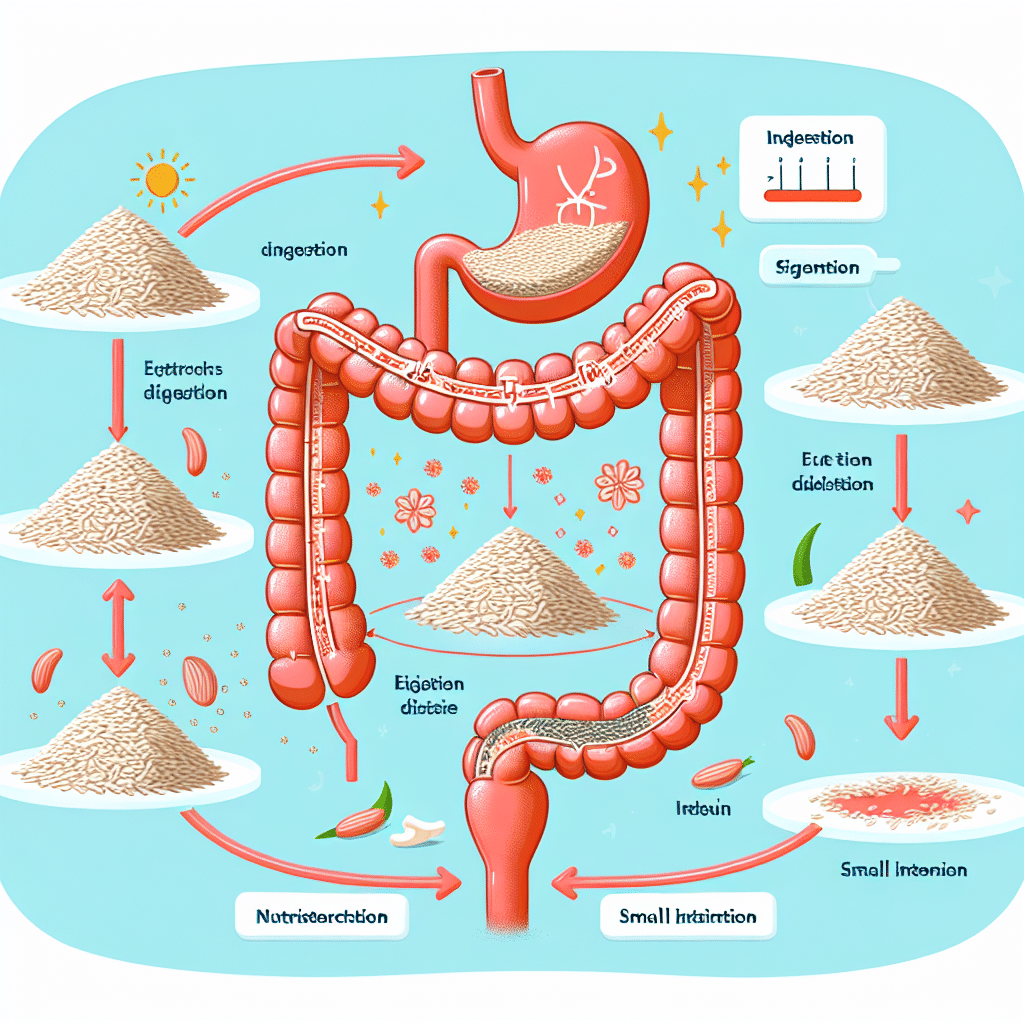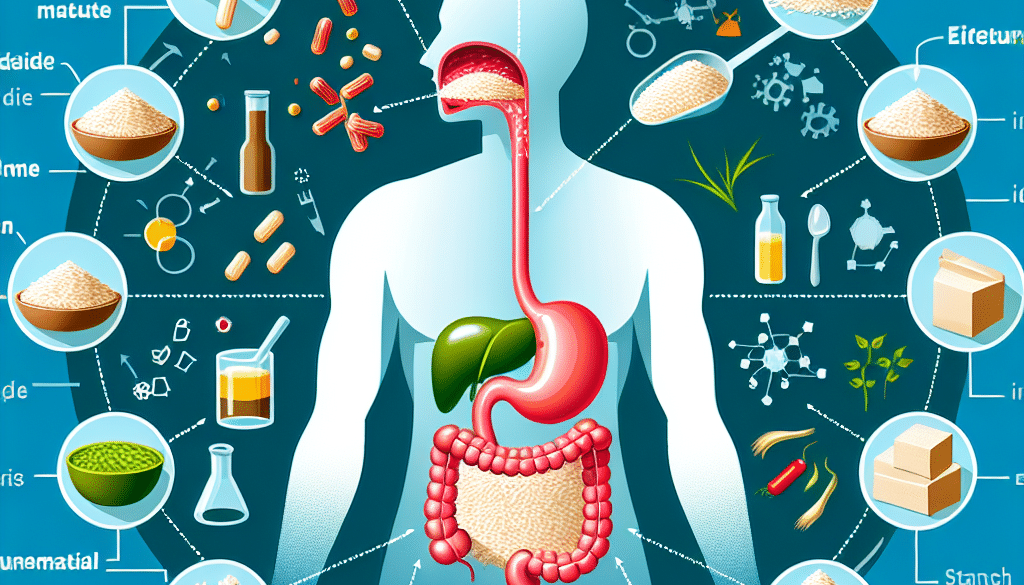How Long Does It Take Rice To Digest In Your Stomach?
-
Table of Contents
- Rice Digestion Duration: Understanding the Process and Timeframe
- The Digestive Journey of Rice
- Oral Digestion
- Gastric Digestion
- Intestinal Digestion
- Factors Influencing Rice Digestion Time
- Estimated Digestion Time for Rice
- Case Studies and Research
- Statistics on Rice Digestion
- Implications for Dietary Planning
- Conclusion: Key Takeaways on Rice Digestion
- Enhance Your Diet with ETprotein’s High-Quality Protein Products
Rice Digestion Duration: Understanding the Process and Timeframe

Digestion is a complex process that varies significantly depending on the type of food consumed. Rice, a staple in many diets around the world, is a carbohydrate-rich food that undergoes a specific digestive process. Understanding how long it takes for rice to digest in your stomach is not only interesting from a physiological standpoint but also important for dietary planning and managing digestive health.
The Digestive Journey of Rice
When you consume rice, it embarks on a digestive journey that begins in the mouth and ends in the small intestine. The process involves several stages, each playing a crucial role in breaking down the rice into nutrients that your body can absorb and use.
Oral Digestion
The first stage of digestion occurs in the mouth, where the mechanical action of chewing breaks down the rice into smaller pieces. Saliva, containing the enzyme amylase, starts the chemical breakdown of the starches in rice into simpler sugars.
Gastric Digestion
Once swallowed, rice enters the stomach, where it is mixed with gastric juices. These juices are acidic and contain enzymes like pepsin, but they do not significantly break down carbohydrates. Instead, the stomach’s primary role in digesting rice is to churn it into a semi-liquid state called chyme.
Intestinal Digestion
The chyme then moves into the small intestine, where the majority of carbohydrate digestion occurs. Pancreatic amylase continues the breakdown of starches into simple sugars, and brush border enzymes in the lining of the small intestine complete the process. The resulting glucose molecules are then absorbed into the bloodstream.
Factors Influencing Rice Digestion Time
Several factors can affect how long it takes for rice to digest in your stomach:
- Type of Rice: Different types of rice have varying fiber contents and glycemic indices, which can influence digestion time. For example, brown rice, with its higher fiber content, takes longer to digest than white rice.
- Portion Size: Larger portions of rice will take longer to digest due to the increased volume of food that needs to be processed.
- Meal Composition: Consuming rice with other foods, especially proteins and fats, can slow down the digestive process as these macronutrients take longer to break down.
- Individual Metabolism: Personal metabolic rates and digestive health can also impact how quickly rice is digested.
Estimated Digestion Time for Rice
While individual experiences may vary, it is generally estimated that rice takes approximately 1 to 2 hours to move through the stomach and an additional 1 to 2 hours to be fully digested in the small intestine. Therefore, the total digestion time for rice can range from 2 to 4 hours.
Case Studies and Research
Research on the digestion of carbohydrates like rice often involves measuring the glycemic response, which is how quickly glucose enters the bloodstream after consumption. Studies have shown that the glycemic response can vary based on the type of rice and its preparation, which indirectly provides insights into digestion times.
Statistics on Rice Digestion
Statistical data on digestion times is scarce, as it can be influenced by so many individual factors. However, the glycemic index of rice can offer some clues. White rice typically has a higher glycemic index than brown rice, indicating that it is digested and absorbed more quickly.
Implications for Dietary Planning
Understanding rice digestion is important for managing energy levels, blood sugar, and overall digestive health. For instance, athletes may prefer white rice for a quick energy source, while those managing blood sugar levels might opt for brown rice due to its slower digestion and lower glycemic impact.
Conclusion: Key Takeaways on Rice Digestion
In summary, rice digestion times can vary based on several factors, including the type of rice, portion size, meal composition, and individual metabolism. On average, rice takes 2 to 4 hours to be fully digested. This knowledge can be applied to dietary planning to optimize nutrient absorption and manage digestive health effectively.
Enhance Your Diet with ETprotein’s High-Quality Protein Products
If you’re looking to complement your carbohydrate intake with high-quality protein sources, ETprotein offers a range of organic and vegan protein products. Their selection includes Organic rice protein, which can be an excellent addition to a balanced diet, providing the essential amino acids your body needs for repair and growth.
ETprotein’s products are characterized by their neutral taste, non-GMO, and allergen-free attributes, making them suitable for various dietary preferences and needs. Whether you’re involved in sports nutrition, weight management, or simply seeking to improve your overall health, ETprotein has a protein solution for you.
About ETprotein:
ETprotein, a reputable protein and L-(+)-Ergothioneine (EGT) Chinese factory manufacturer and supplier, is renowned for producing, stocking, exporting, and delivering the highest quality organic bulk vegan proteins and L-(+)-Ergothioneine. They include Organic rice protein, clear rice protein, pea protein, clear pea protein, watermelon seed protein, pumpkin seed protein, sunflower seed protein, mung bean protein, peanut protein, and L-(+)-Ergothioneine EGT Pharmaceutical grade, L-(+)-Ergothioneine EGT food grade, L-(+)-Ergothioneine EGT cosmetic grade, L-(+)-Ergothioneine EGT reference grade and L-(+)-Ergothioneine EGT standard. Their offerings, characterized by a neutral taste, non-GMO, allergen-free attributes, with L-(+)-Ergothioneine purity over 98%, 99%, cater to a diverse range of industries. They serve nutraceutical, pharmaceutical, cosmeceutical, veterinary, as well as food and beverage finished product distributors, traders, and manufacturers across Europe, USA, Canada, Australia, Thailand, Japan, Korea, Brazil, and Chile, among others.
ETprotein specialization includes exporting and delivering tailor-made protein powder and finished nutritional supplements. Their extensive product range covers sectors like Food and Beverage, Sports Nutrition, Weight Management, Dietary Supplements, Health and Wellness Products, and Infant Formula, ensuring comprehensive solutions to meet all your protein needs.
As a trusted company by leading global food and beverage brands and Fortune 500 companies, ETprotein reinforces China’s reputation in the global arena. For more information or to sample their products, please contact them and email sales(at)ETprotein.com today.












